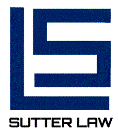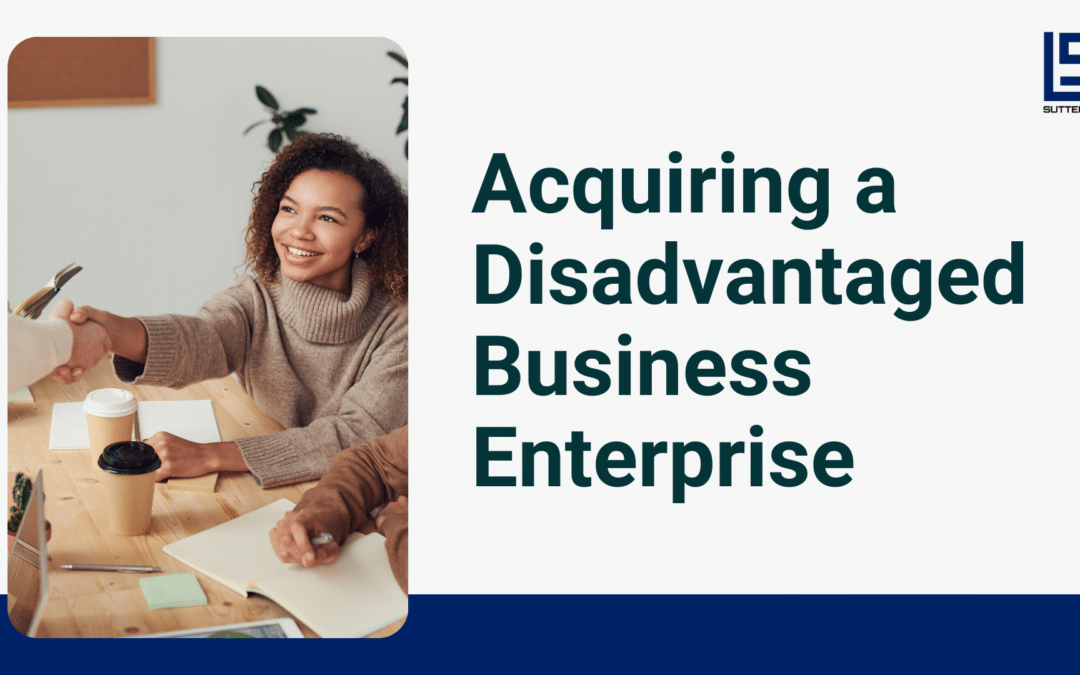Table of Contents
This summary addresses the acquisition of a Disadvantaged Business Enterprise, as governed under 49 CFR § 26 and the following rules.
There are three main criteria one should be aware of in acquiring an existing DBE:
1. ownership & source(s) of funding,
2. control/governance, and
3. post change of control compliance, including general requirements for contracting as a DBE entity and the process which may be expected following notification of the change of control.
Ownership & Sources of Funding
With respect to the form and means of funding, generally speaking, the socially or economically disadvantaged owner (SEDO) should have a risk of loss and a significant outlay of personal capital.
There can be funding sources and other partners, but the benefits and burdens among these partners should be proportionate.
While debt financing can be alright in some instances, there are minimum capital outlay requirements and considerations around the terms of such financing.
Because the SEDO needs to maintain control, and the benefit and burden need to be proportionate, the SEDO should generally have an investment of capital in the business that reflects that majority ownership.
Finally, it is important that these criteria continue to be met during the ownership of the DBE. Subsequent changes may be subject to reporting requirements and could jeopardize DBE status for a business.
Control/Governance
There are both objective and subjective requirements for demonstrating that the SEDO has adequate control and governance over a DBE company. These requirements will need to be taken into account as we draft governance documents for how the company will operate post-acquisition.
Generally speaking, it is important for the SEDO to:
- Be the ultimate decision maker – This means that they should have the highest executive position in the company and board control, and not be subject to being overruled by another non-SEDO party. The requirements can be met by providing the SEDO a majority of the board seats or a tiebreaking vote and appointing the SEDO as the President and CEO of the DBE company. You should also avoid voting agreements or other arrangements that would ultimately subject the SEDO to control from another party. Such agreements would need to be disclosed to the reviewer and would violate this requirement.
- Have expertise in the business – This is required to avoid a situation in which a SEDO is a figurehead and does not have the requisite expertise to actually run the business. Court decisions have clarified that a reviewer may look more closely here and even compare the SEDO’s expertise to those of the DBE company’s employees.
- Have expertise in the business – This is required to avoid a situation in which a SEDO is a figurehead and does not have the requisite expertise to actually run the business. Court decisions have clarified that a reviewer may look more closely here and even compare the SEDO’s expertise to those of the DBE company’s employees.
- Exercise critical analysis and independent decision making – While delegation is permitted (see below), the SEDO must be, both capable of and in practice, exercising their own independent judgment in operating the DBE company.
Notwithstanding the foregoing requirements, it is possible for a SEDO to delegate authority regarding day to day business operations, as would typically be the case for any corporate officer.
However, this is subject to specific requirements that should be taken into account not only in structuring the authority of the SEDO, but in how the Company conducts its operations and is governed on a going forward basis.
The regulations also provide restrictions to make sure that the DBE operates as an independent business.
This is crucial to avoid a situation where the SEDO controlled entity serves merely as a shell where the real financing and control are in the hands of someone else.
Compliance and Certification Considerations
There are certain ongoing compliance requirements that are helpful to be aware of with respect to both certification review after a change of control transaction and with respect to continuing operations and contract flow process.
To the extent possible, there matters should be reviewed and planned for as part of due diligence. Some of the key requirements to be aware of are as follows:
- Material changes that may affect continued eligibility as a DBE company should be reported to the recipient or UCP (see the section on Certification Review below) within thirty (30) days.
- The DBE company must continue to meet certain non-discrimination requirements, such as not discriminating on the basis of race, color, national origin, or sex in performing any contracts.
- On each anniversary of the DBE company’s certification, it should provide a declaration of eligibility and meet other reporting requirements.
- In bidding on and performing under DBE contracts, it is important that the DBE company continues maintain compliance with the ownership and source of funding and control/governance requirements.
With respect to this review process, it is important to keep in mind that the certifying authority may do onsite visits, interview the SEDO along with officers and key personnel, visit active job sites and review resumes, and review the legal structure, financial agreements, payroll, leases, and other key documentation.
Conclusion
Acquiring a DBE can come with a range of considerations. These are compounded if a non-SEDO party will be involved as a partner in such an acquisition.
It is important to make sure that you have counsel who is not only aware of the ins and outs of your typical M&A process, but is also familiar with the DBE requirements.
If you are looking to acquire a DBE, reach out to one of our attorneys to see if we may be able to assist you.
The earlier we are involved the more efficiently we can assist our clients and help ensure a smooth acquisition and recertification process.






